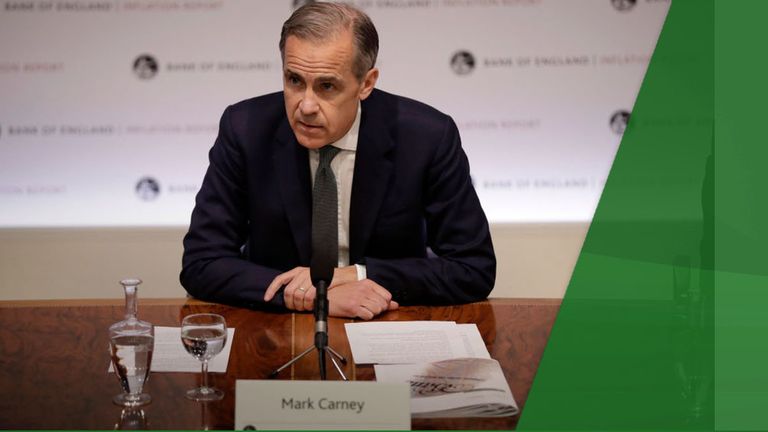Hopes were high for Christine Lagarde when, at the beginning of November, she became president of the European Central Bank.
The former managing director of the International Monetary Fund was credited with having the silky diplomatic skills needed to convince thrifty Germans that the ECB’s negative interest rates were a price worth paying to stimulate economic growth in the Eurozone.
Ms Lagarde, it was hoped, would also be more successful than her immediate predecessor, Mario Draghi, in persuading Eurozone governments that they, too, would berequired to play more of a role in this process by providing fiscal stimulus.
Unfortunately, Ms Lagarde has already undermined her ability to make that case.
At a meeting with MEPs on 4 September, before she had even started in the job, Ms Lagarde stressed she regarded the ECB as having a significant role to play in combating climate change.
She told the European Parliament’s committee on economic affairs: “My personal view is that any institution has to have climate change risk and protection of the environment at the core of their understanding of their mission.

“[The] primary mandate is price stability, of course. But it has to be embedded that climate change and environmental risk are mission-critical.”
Those comments were reinforced two weeks ago in a speech by Luis de Guindos, one of Ms Lagarde’s vice presidents, in which he said the ECB was “studying the potential impact of climate-related risks for the euro area financial system”.
Mr de Guindos said this could include incorporating climate change into the ECB’s regular stress tests for the Eurozone’s banks.
He added: “Banks clearly need to treat risks from climate change in the same fashion as other financial risks. “
The Financial Times has since reported that Ms Lagarde” is pushing for climate change to be part of a strategic review of the European Central Bank’s purpose, spearheading a global drive to make the environment an essential part of monetary policymaking “.
On Monday this week, Ms Lagarde confirmed this was indeed her aim, telling MEPs that she wanted the ECB to incorporate the threat posed by climate change into both its economic forecasts and its stress tests.
Noting that the ECB uses models to forecast how the Eurozone economy can be expected to function, she added: “These models need to incorporate the risk of climate change. That’s the very least, I think, we should expect. “
Ms Lagarde also suggested the ECB could help combat climate change by changing how it invests its own pension fund or by using a chunk of its € 20 bn-a-month asset purchases – quantitative easing in the jargon – to buy assets helping ‘green’ the Eurozone economy.
In making this case, Ms Lagarde is merely echoing the sentiments of other important central bankers, chiefly Mark Carney.
 ******
******
The Bank of England governor, who will become the UN’s special envoy for climate action and finance when he leaves Threadneedle Street, has blazed a trail in arguing banks should regard climate change not as a potential reputational risk but as a core
Under Mr Carney, the Bank has become the first regulator to stress test its financial system against “different climate pathways”, including what he called the “catastrophic business as usual scenario “.
It has made Mr Carney an influential voice among central bankers everywhere and his proposals on stress tests, in particular, are clearly one of the things Ms Lagarde has in mind.
But no one should doubt that what Ms Lagarde is mulling is explosive – especially given the scepticism of the German public and many German policymakers towards the ECB.
They think the ECB should concentrate on ensuring price stability and the stability of the Eurozone’s finance sy
Most powerful among them is Jens Weidmann, president of Germany’s central bank, the Bundesbank, who recently said that fighting climate change was a matter for governments, not the ECB.
He added: “Monetary policy that explicitly pursues environmental goals runs the risk of being overburdened. Politicians with democratic legitimacy must decide how society should combat climate change and they must also bear the responsibility for this. “
Mr Weidmann is also unhappy at the suggestion the ECB’s asset purchase scheme should be used to this end.
He said: “In the implementation of monetary policy, the principle of market neutrality must be observed… preference for buying green bonds would contradict this principle.”
The process is, in fact, under way. The ECB already owns 10 green bonds worth € 221 m in its investment portfolio and a further six , worth € 193 m, held as part of its asset purchases.
But you don’t have to be an inflation obsessive, like Mr Weidmann, to worry Ms Lagarde may be taking things too far.

It reinforces the idea that only central bankers are capable of doing the heavy lifting in certain policy areas, rather than leaving it to elected politicians
Embedding environmental policies into the ECB’s mandate not only makes it harder for the ECB to focus on its core role of achieving monetary stability. It gives it a ready-made excuse when it fails to hit its targets on inflation and financial stability.
It also risks politicizing, further, the job of ECB president.
Worst of all, it reinforces the idea that only central bankers, like Ms Lagarde and Mr Carney, are capable of doing the heavy lifting in certain policy areas, rather than leaving it to elected politicians.
If the Eurozone’s politicians want to combat climate change, they should legislate against activities that are contributing to it, or raise taxes on carbon emissions, or provide subsidies for activities that help reduce climate change, such as renewable energy.
Ms Lagarde’s proposals run the risk of letting politicians think they can get away with doing none of this because the ECB will take care of things.
In the years immediately after the financial crisis, many people allowed themselves to think central bankers were superheroes, blessed with powers to stave o ff crises not possessed by mere politicians.
Mr Draghi spent most of his tenuretrying to persuade Eurozone politicians that central bankers alone could not stimulate economic growth and that they, too, should step up to the plate.
Ms Lagarde appears to want the same.
How unfortunate that, in arguing that the ECB should take the lead in fighting climate change, she has instead undermined that argument and breathed life back into the notion that central bankers are superheroes.
Sky Views is a series of comment pieces by Sky News editors and correspondents, published every morning.
Previously on Sky Views:Rowland Manthorpe – Data doesn’t win elections, but it’s changing the rules of the game







GIPHY App Key not set. Please check settings